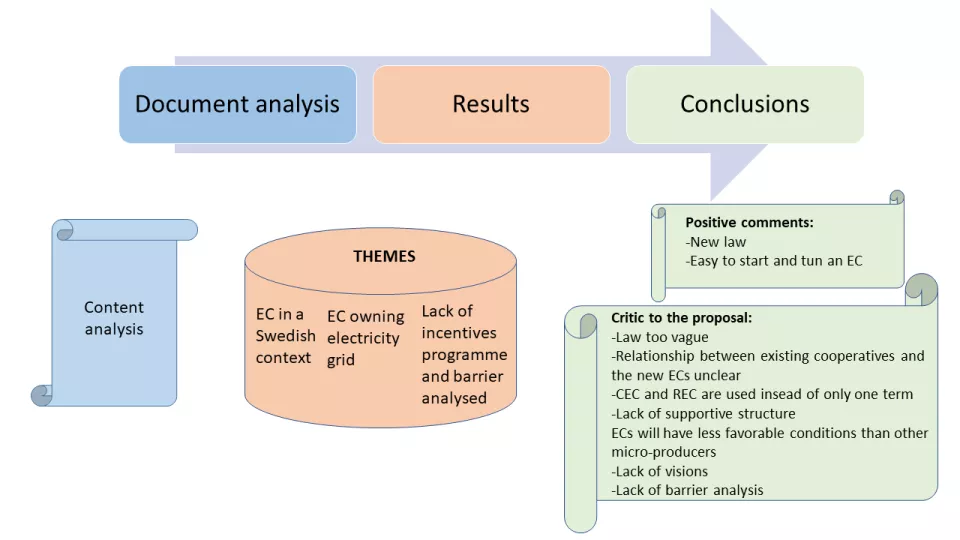One organizational innovation introduced by the Clean Energy for All Europeans package (CEP) is that of the energy community (EC), including the renewable energy community (REC) and citizen energy community (CEC). The translation of related directives into national legislation is underway in Sweden, and the Swedish Energy Market Inspectorate (Ei) has proposed a new law on ECs, which has been sent for consultation. This article by Professor Jenny Palm analyzes the Ei proposal and the responses from the 27 referral bodies commenting on the new EC regulations.
Positive aspects of the proposal were that it would be a law on ECs and that it would be easy to start and run an EC. Critics were concerned that the law was too vague, the relationship between existing cooperatives and the new ECs was not clear, both CEC and REC are used instead of only using one term, there is a lack of suggestions on supportive measures for ECs, ECs will have less favorable conditions than other micro-producers of electricity, there is a lack of barrier analysis and visions of a future of ECs, and finally, that the situation for marginalized households was not dealt with in the proposal.


